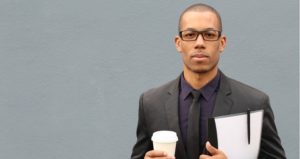
From Inclusion to Equity: Pedagogies that Close Achievement Gaps
This article is featured in the resource guide, Effective Online Teaching Strategies. You’re committed to equity and inclusion. You’ve been educating yourself about how higher


This article is featured in the resource guide, Effective Online Teaching Strategies. You’re committed to equity and inclusion. You’ve been educating yourself about how higher

It’s the first day of class. They shuffle in, spot similar life-forms, and slip in with that group. Hipsters sporting wild hair and tats, buttoned-up and serious young scholars, middle-aged moms and dads, maybe a couple of aging hippies. One or two sad souls choose spots isolated from the others; they don’t want to identify with them for reasons of insecurity, arrogance, or something else.

The first day of class is critical. What happens on the first day, even in the first moments, sets the tone for the entire course. The impression you make will last the entire semester, and today’s students are not shy about sharing their opinions. Most students will make up their minds about the course and the instructor during that first class period.

I was the invited outside speaker at a professional development event for schoolteachers. The day’s lunch was preceded by a public prayer that inspired me to consider parallels in “callings to serve” that can be found in both education and religion. Sometime later, I happened to read a poem in a Jewish prayer book that expressed noble intentions for a worship space. The poem didn’t reference a particular faith—it was really just a set of intentions. Immediately, I thought of what professors hope for in their classroom spaces.
How do we make learning messy and unpredictable for our students—and why? I posed this question to the members of the Teaching Professor group on LinkedIn in July, and a lively and insightful discussion immediately began. This article is based upon the insights shared in the discussion.
I am unabashedly proud of my pedagogical article resource file. I’ve been collecting good articles on teaching and learning since the early ’80s. I use the file almost every day, and in the process of looking for a particular article, I regularly stumble onto others whose contents I remember when I see them but have otherwise forgotten.
I had a most interesting experience last summer. I have taught college composition for many years, but I had not participated in a writing workshop as a writer for a long time. Of course, I had regularly run workshops in my classroom. But this time, I had written a short, 600-word essay, and it was workshopped (which to those of us in composition means reviewed and critiqued) by my peers as part of a larger in-service on curiosity and writing.
When the workshop was finished, I turned to a fellow English professor and said, “So that’s how it’s supposed to be done!”
Instructors need to be thoughtful and reflective about those strategies they use when they respond to students’ answers, and this is especially true when the answer given is wrong. Most of us understand that the stakes are high in this case. Students are easily intimidated. Even those not participating can be negatively affected by how an instructor handles incorrect answers. Some current philosophies of education argue against telling students that they are wrong. The thinking here is that students need to figure out for themselves if their answers are right or wrong. Instead of telling them, instructors should guide them to the right answers, possibly through some sort of Socratic dialogue…
Get exclusive access to programs, reports, podcast episodes, articles, and more!